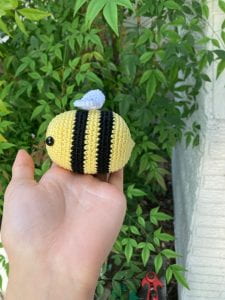The Odyssey is an epic poem allegedly written by Homer (I say allegedly because it is impossible to know what happened that far back without written records). It was originally recorded in Greek but has since been translated into many languages. It follows the Greek hero Odysseus’s journey home from the Trojan War. This recap will have spoilers but this epic has been around for 2,000 years now, so I don’t feel that bad about it. After Troy fell, Odysseus and his 600 men set sail back home to Ithaca where he is king. There awaits his wife Penelope and son Telemachus who was born right before he left. His second in command Eurylochus is married to Odysseus’s sister, Ctimene, therefore making him his brother-in-law. The epic bounces around narration, but I will tell the story in chronological order for the sake of cohesiveness.
First of all, some background on Odysseus. Odysseus is a Greek king of Ithaca. He is renowned for his intelligence and quick thinking. He is also a good leader and fighter. In addition his patron god (or should I say goddess) is Athena. This means she watches over him. Odysseus, uniquely, is a very loyal family man. He is in love with his wife and will do anything to get back to her and their son.
The first obstacle Odysseus and his crew face is the island of the lotus eaters. Lotus (in Greek mythology) is a fruit that makes one forget their motivations. The inhabitants of the island were all men who had eaten lotus and now wanted to stay there forever because of the lotus’s affects on their minds. Though the lotus eaters were passive, they would offer lotus to anyone naïve enough to take it. A few of Odysseus’s crew explored the island and ended up eating some lotus offered to them. Promptly upon discovering this, Odysseus dragged his men back onto the ships (a fleet of 12 ships) and ordered them to set sail. Talk about ancient Greek stranger danger.
The next challenge they encounter is a cyclops. Low on food and supplies, Odysseus decides to land on an island and see what food they can get. Luckily, or so it seemed, the island was full of sheep. Kind of makes you question why a random island in the middle of the Aegean sea filled with sheep didn’t ring at least one alarm bell in anyone’s mind but “sunt pueri pueri, pueri puerilia tractant” I guess. Anyways, this island is home to cyclopes. The one that Odysseus and his small scouting mission finds is a “baby” cyclops named Polyphemus. While Polyphemus is away tending to his crops, the scouting group sneaks into his cave to “borrow” (steal) food and supplies. Unfortunately, the cyclops returns at nightfall, bringing his flock inside with him, and closes the massive boulder that acts as a door for the cave. 6 of Odysseus’s men are eaten by Polyphemus. Odysseus offers him wine and introduces himself as “nobody”. Odysseus then manages to stab Polyphemus’s eye out. When the other cyclopes hear him bellowing in pain, they ask who hurt him. He responds with “nobody”. They respond, “If no one hurts you, you are alone” (book 9, pg. 253 Emily Wilson’s translation of the Odyssey). Eventually, Odysseus and the remaining men are able to escape by hanging onto the underside of the sheep on their way out to graze in the morning. Unable to see anything wrong, the cyclops opens the boulder and gives Odysseus and his men the path to freedom. However, of course something had to go wrong. In a fit of rage for his fallen comrades and blinded by hubris, Odysseus shouts from the retreating ships, “Cyclops, if ever mortal man inquire how you were put to shame and blinded, tell him Odysseus, raider of cities, took your eye: Laërtês’ son, whose home’s on Ithaca!” (book 9, page 160 [lines 495-555] Robert Fitzgerald’s translation of the Odyssey, spelling changed for cohesiveness). Yes, you read that right. Our boy Odysseus just doxxed himself. Might as well tell him your social security number with that at that point. Now, it might not seem that bad to tell a cyclops who lives out in the middle of the ocean your name and home city, it is bad in this case because Polyphemus has a dad. A certain powerful dad that may or may not be the god of what Odysseus will be sailing on for the rest of his journey. That’s right, Polyphemus’s dad is Poseidon. Poseidon as in the god of the sea Poseidon. Maybe not the smartest move on Odysseus’s front. In addition to that, Polyphemus and the other cyclopes hurl rocks at Odysseus’s fleet until only his ship remains, killing everyone on board of the other eleven ships.
The crew starts feeling the effects of their captain’s slip-up right away. They experience the worst storm any of them have ever seen. Amidst the storm, however, there is a clear patch of sky. In it is the floating island of Aeolus, the god of the winds. Odysseus goes to see him and explains the situation to him. Aeolus agrees that he will contain Poseidon’s storm on one condition: he will put the winds in a bag and no one may open it because the storm would blow back with the same intensity as before and blow them far away from Ithaca. Odysseus agrees and returns to his ship. He tells the crew about the bag and its contents, however, many in the crew are not convinced and are certain it is treasure of some kind that Odysseus is hoarding to himself. Odysseus, too, does not fully trust his crew, so he stays awake and guards the bag for nine days. Talk about dedication to get back to your wife and child. Unfortunately, a mortal can only stay awake for so long. Keep in mind that at this point the crew is so close to home, they can see the shores of Ithaca. With all that, the crew still opens the bag. They open the bag. They. Open. The. Bag. Yeah, it wasn’t the brightest idea from the crew (just wait, more to come). The winds of the storm return full-force and blow them back to the island floating on the sea, undoing nine days of smooth sailing. Odysseus once again appeals to Aeolus, but this time he rejects, sure that a man this unlucky has been cast out by the gods. Hopeless, Odysseus and his crew set sail.
Because the universe hates Odysseus, the next place he arrives is a test of his faith. He finds himself on the island of Aeaea. Odysseus sends a small group of men to scout the island while he oversees repairs to the damages to the ship caused by the storm. After a while, Eurylochus returns. Alone. Odysseus inquires at the whereabouts of the rest of his group, and Eurylochus responds with bad news. This island is home to an immortal witch named Circe and she has turned his crew into pigs. Odysseus is at once seized with the urgency to go rescue his men. Eurylochus, on the contrary, begs Odysseus to leave them because it is too dangerous. Undeterred, Odysseus heads in the direction of Circe’s palace. On the way, Odysseus meets the god of messengers, Hermes. Hermes offers to help Odysseus and gives him Moly. Moly is a flower that has the power to combat Circe’s magic. Once consumed, it will not allow any of Circe’s spells to work on him. Thanking Hermes, Odysseus sets off once again to rescue his men. Once he meets Circe, she is confused as to how none of her spells work on him. She lunges to attack him, but Odysseus manages to evade and corner her. Circe determines that he must be Odysseus, as it was prophesied that he would visit her island. Though only thinking of his dear Penelope, Odysseus agrees to go to bed with Circe on the condition that she reverts his men into humans, and that she will do them no harm. After a while on Aeaea, Odysseus becomes restless to get back home. He talks with Circe and she is willing to let them go, and even offers him advice. Circe tells Odysseus to go to the underworld to consult the spirit of Tiresias, a blind Theban prophet who Circe believes can help Odysseus on his journey home.
In the world of the Odyssey, the underworld is located at the edge of the known world. After sailing there, the crew set up the ceremony to summon the dead. While awaiting Tiresias, Odysseus meets people he knew who are now dead. He meets Achilles, now reunited with Patroclus in death, his mother, Anticleia, who died after Odysseus has left for the Trojan War, and Agamemnon, the leader of the Greek troops in the Trojan War who had been killed by his own wife promptly after returning home from the war. When Tiresias finally arrives, his one piece of advice to Odysseus is to never kill the cattle of the Sun God on the island of Thrinacia. Seems like a pretty easy thing to me.
After a quick trip back to Circe’s palace, Odysseus sets sail once again. He meets some sirens, and is one of the first mortals to hear their deadly songs and live to tell the tale. He also encounters Scylla, a six headed sea monster that he is forced to sacrifice six men to. Finally, he is forced to dock on the island of Thrinacia. Sound familiar? Odysseus tells his crew over and over and over again not to lay a finger of the cattle that are roaming around the island. Do the crew listen? No. Driven mad by hunger, Eurylochus proposes the idea of killing and eating the cows. In doing so, they seal their fate. Helios notices at once and tells Zeus, king of the gods. Zeus comes down and strikes the ship down. Odysseus is the only one fated to survive. He survives by holding onto some boards that came from the now destroyed ship. On this makeshift raft, he meets Charybdis, a whirlpool monster. Odysseus lives by holding onto a fig tree whose roots will not allow it to be sucked into the lethal monster’s mouth. He drifts for nine days, and on the tenth is discovered.
Odysseus washes up on the shore of Ogygia. This island is home to the goddess Calypso. Calypso ends up trapping him on the island for seven years. Now, you must be wondering, where is Athena? She’s supposed to be Odysseus’s patron goddess, right? Well, she has been watching Odysseus the entire time and decides that he needs her help. Yeah Athena, after his entire crew died and he’s been stuck on an unplottable island for seven years. Athena appeals to her father Zeus, and he finally relents and sends Hermes to take Odysseus off the island. Odysseus makes it to the kingdom of Hyperia and finally makes it home. In total his journey from Troy to Ithaca took ten years, not to mention the ten years of the Trojan War itself. In total, Odysseus was gone from his kingdom for twenty years.
At home, the young men of Ithaca are not vying for queen Penelope’s hand in marriage. They believe Ithaca has been kingless for too long, and that Odysseus is probably dead. Everyone else from the Trojan War made it home alive, so why hasn’t Odysseus returned yet? A few years before Odysseus’s return, his son, Telemachus, sets out to find answers. He visits Menelaus, the brother of Agamemnon and wife of Helen (her abduction was the cause of the Trojan War) to find details of his father’s whereabouts. Odysseus, on the other hand, has returned to Ithaca to take his place as ruler. However, his palace is taken over by rowdy suitors. He devises a plan with Athena. She disguises him as a beggar and he enters the palace to get a read on the situation.
Penelope is as intelligent as Odysseus, and although she doesn’t know her husband has returned, she knows she must at least pretend to be looking for a suitor to appease them. She devises a challenge that whoever can string Odysseus’s bow and shoot through twelve axe-heads cleanly will be the new king. Little do the suitors know, Odysseus’s bow is so unique that only he, his son, and Penelope know how to string it. On the night the challenge is announced, Odysseus sneaks in to participate as well, still disguised as a beggar. Like predicted, none of the 108 suitors can string his bow, let alone shoot with it. However, Odysseus the beggar gives it a try and strings it easily. What the suitors don’t know is that Odysseus and Telemachus had been scheming to trap the suitors in the palace. By the end of the night, Odysseus and Telemachus had killed all of the suitors. Odysseus returns to take his rightful place as king of Ithaca and is reunited with Penelope.
If you liked the story, here are some Odyssey-related things I recommend checking out:
Circe, a book by Madeline Miller
Epic the Musical, a musical based on the Odyssey by Jorge Rivera-Herrans (this is my favourite musical of all time, I cannot recommend it enough)
Any translations of the Odyssey and Iliad, they’re genuinely really good reads, especially if you are into Greek mythology. For translations, I would recommend Emily Wilson if you want a simpler translation to read. Robert Fitzgerald is known for his accurate translations of Greek poetry and I would highly recommend it if you are a fan of these things
Thank you for sticking around until the end, this blog was a long one, but I hope you learned something new! <3






